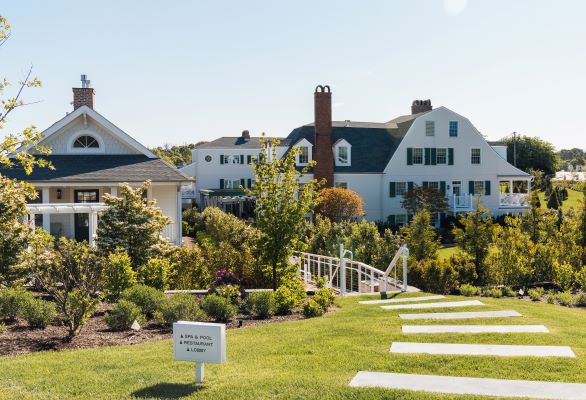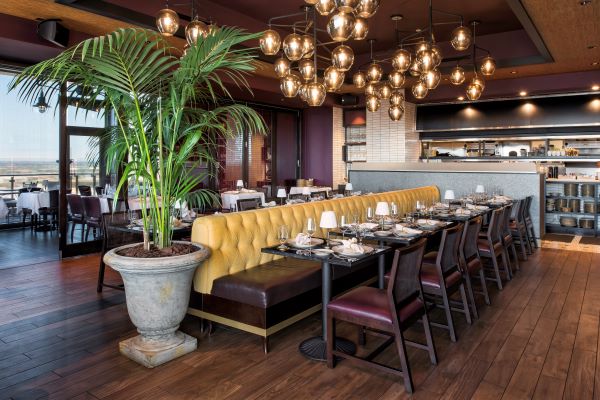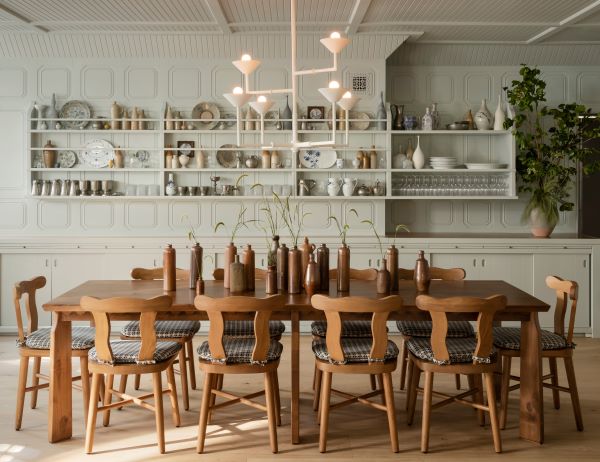At one time, perhaps before the 2000s, hotels largely could differentiate themselves simply by their brand name alone—and maybe a decent logo and some informative collateral.
Not anymore.
Today’s sophisticated travelers want not just a stay but an experience. To provide that, especially at the luxury level, hotels must set themselves apart in nearly every aspect of a guest’s stay, communicating their unique value proposition.
It’s a massive undertaking—and independent hotels aren’t the only ones retaining creative agencies. Properties with major flags, and even those in groups like Relais & Châteaux, are enlisting the help of such firms.
That’s because, in essence, branding delivers big returns. Advertising and creative agencies working with hotels report that clearly defining and showcasing a property’s brand increases guest satisfaction and boosts ADR. To achieve such winning results, branding experts advise hotels to—in the words of music icon Madonna—express yourself.
“We’re in an era when customers care about a sense of place and a story; that drives room rates,” said Donna Oetzel, executive director, brand, at Streetsense, a creative agency and hospitality consultant. “Some hotels we’ve worked with, where we developed their story and brand, their room rates are through the roof because people seek that experience.”
Brand experience is the operative term, said Matt Ferebee, co-founder and chief creative officer at FerebeeLane, an advertising agency that works with hotels on branding. He cites a hospitality industry icon to drive home his point. “Ian Schrager made many of us understand that a hotel stay is about various touch points: what you see, hear and smell, the way the front desk answers the phone, the sound of the lobby. All of those things express the brand experience.”

Why Storytellers?
Branding starts with developing a story that a hotel wants to tell guests.
“Our work is to help amplify, articulate and sharpen a property’s personality as it’s expressed in websites, advertising and marketing, but also in the guest experience,” said Ferebee.
For example, his company has worked with Blackberry Farm, a member of Relais & Châteaux based in Walland, Tenn., for more than 15 years and the effort started with determining “how does this brand express itself?”
From there, he said, “Every touchpoint—the paint color, custom soft goods, follow-ups from the concierge, the look of uniforms and how we engage—is the brand story. It’s how the hotel wants to speak to consumers off-property and guests on-property.”
In fact, that conversation needs to start off-property, once the booking is made, noted Streetsense’s Ed Viita, managing director, hospitality. “Branding is not just about the physical space and the guest experience on property, it’s also about the digital space and pre-arrival storytelling. We make recommendations to bring the brand story to life through experiences presented to upcoming guests once they book.”
Though these measures take effort, some hoteliers still might question why a branded hotel, backed by a behemoth marketing arm at a major hotel company, would need an outside agency.
One reason: Many third-party firms don’t solely focus on hotels, giving them a broader perspective. For example, Ferebee represents a high-end kitchenware company, while Streetsense’s clients include multifamily developments and entertainment districts.
“Working with an agency brings in an outside perspective that’s fresh and bold,” said Sarah Chabot, VP of marketing at Blackberry Farm. She said that FerebeeLane understands the desired guest experience and “how we can work together to create really great communication experiences for our guests.”
It also makes sense because, simply put, hotel company staff are busy, Oetzel noted. “It takes a lot of craft to build a brand and in-house teams are wonderful, with lots of talent, but they also have lots of things to do and focus on.”

Standards Bearers
Agencies aren’t scared off by rigorous brand standards, either. In fact, those rules are helpful in creating brands, said Viita. “There are brand standards and brand guidelines; the latter give you some freedom for movement. They are designed to provide both internal and external creative teams with direction around the brand strategy and company vision, and, therefore, how the brand should be brought to life in different formats and environments.”
He continued, “Of course, any form of guidelines is more limiting than no direction at all, but that doesn’t mean that guidelines limit all freedom for creative teams to develop unique, locally relevant applications of the ‘master’ brand identity. We still can extend the brand with food and beverage experiences, ballroom names, the fitness center or the like.”
In fact, for one select-service hotel client of Streetsense, Oetzel shared, despite rules around the brand, the hotel’s location on water, near a competitive boating facility and where the owner was proud to have a property, a lot of the decor focused on boating. “Even within a hotel with a pretty strict set of expectations, it was infused with a sense of story because of the local context, which drove business there,” she said.
Hotel brands today often are looking beyond standards now, added Ferebee. “Ritz-Carlton has a magnificent framework for how their brand is expressed, but they no longer stamp that as a homogenized thing they want everywhere,” he said. “They say, ‘Please help us put our ears to the ground in Dallas and express what this place wants to be.’”

Turning Agencies Away
In some instances, branding agencies create a jumping-off point for hotels and properties can then run with the brand concept developed, enabling in-house personnel to take over from an agency, Oetzel said. “Many times, it goes back in-house and then the internal team is able to take that brand that’s been built and use it as an engine to drive very effective marketing and programming activations.”
Sometimes, the branding experts admitted, hotels just aren’t willing to bring in outside help.
“If it feels like there’s a huge gulf in understanding between what a hotelier wants to pay for and what they think that they’re getting compared to what we offer then you say, ‘We can only offer our best advice and at a certain point you just don’t work together,’” Oetzel said.
Added Ferebee, “There are those who don’t connect the dots between what we do and the higher ADR. Even at the luxury level there are folks who say, ‘We don’t need a story, we’ve got expensive sheets and very nice bathrooms, thank you.’ And that’s fine; best of luck to them.”
But that position is to the detriment of hoteliers, Ferebee said. “Hotel owners and executives who focus on a more narrative guest experience and align everything to a guiding brand story ultimately are investing in satisfaction, loyalty and rate. The story of a place—and the way the property team expresses that—is a powerful draw. Guests pay a premium to experience it.”
Story contributed by Rayna Katz.
